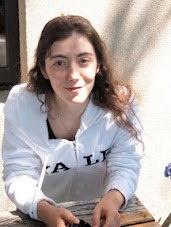Hannah Katznelson (University of California, Berkeley)
Doctoral Fellow in Research Area 3: "Future Perfect"
May–October 2023
Renaissance Epics: Hybridising the Epic Past in Early Modernity
Epic is always engaged in theorising temporality. Epic explicitly depicts political events of the past and through them creates a historical framework for understanding the present. In order to fulfil its legitimising and aetiologising functions, it must depict the past as causally continuous with the present according to the medieval model of translatio imperii: Aeneas's descendants will found Rome and Charlemagne's victories will preserve Europe as Christian. The writing of Renaissance epics, then, becomes neatly metonymic for the humanist project of translatio studii, or the recuperation of ancient culture and literary forms and their accommodation to the modern world. There are, however, virtually no true Renaissance epics. Classical epic material is widely received throughout the early modern period, but overwhelmingly in generically hybrid or experimental texts, which activate the stakes and problematics of the epic genre while problematising their relationship to it.
This project proposes to rethink epic in the early modern period as functioning as an open-ended and synthetic mode rather than as a limited canon of texts. Epic both encompasses and appears within genres such as historiography (Rabelais, d’Aubigné), theology (Scève, Milton), pastoral (Spenser, Sidney), tragedy (Shakespeare, Racine), lyric (Petrarch, du Bellay) and, of course, romance (Tasso, Ariosto). Importantly, these secondary genres come with their own implicit literary temporalities, which may relate very differently to the present moment and its political structures than simple epic translatio would. This project will explore how the heroic pastness of epic negotiates the temporal models of the genres with which it hybridises and what political claims or critiques become possible as a result.
Hannah Katznelson is a PhD candidate in the Department of Comparative Literature at the University of California, Berkeley and a member of the Renaissance and Early Modern Studies Designated Emphasis programme. She works primarily on narrative poetry between the French and English literary traditions of the early modern period, with an interest in the persistence of late medieval literary culture in both contexts. At the EXC 2020 she will begin work on her dissertation, which will explore how sixteenth-century literary authors theorise their own reception.
